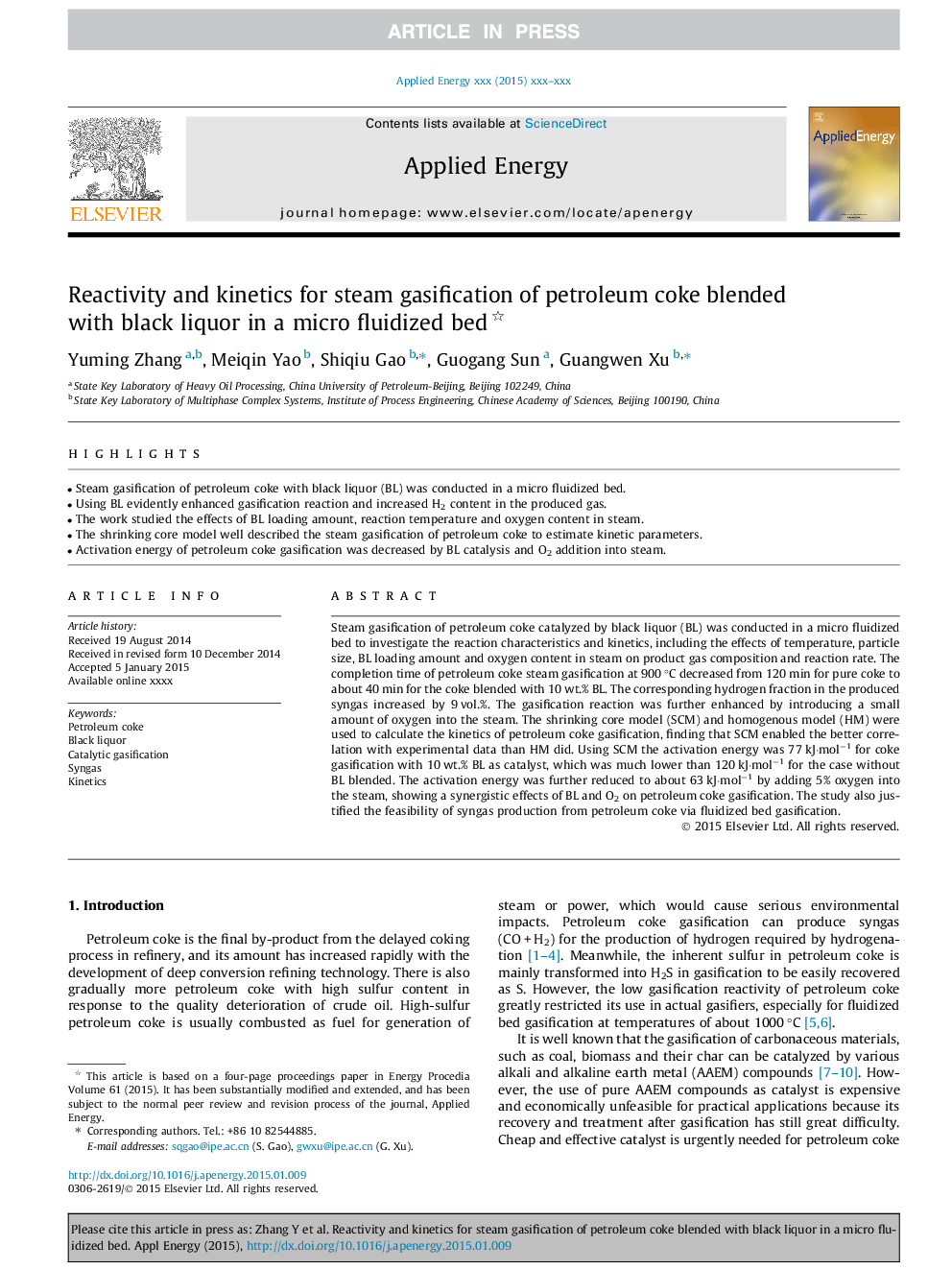| Article ID | Journal | Published Year | Pages | File Type |
|---|---|---|---|---|
| 6685441 | Applied Energy | 2015 | 9 Pages |
Abstract
Steam gasification of petroleum coke catalyzed by black liquor (BL) was conducted in a micro fluidized bed to investigate the reaction characteristics and kinetics, including the effects of temperature, particle size, BL loading amount and oxygen content in steam on product gas composition and reaction rate. The completion time of petroleum coke steam gasification at 900 °C decreased from 120 min for pure coke to about 40 min for the coke blended with 10 wt.% BL. The corresponding hydrogen fraction in the produced syngas increased by 9 vol.%. The gasification reaction was further enhanced by introducing a small amount of oxygen into the steam. The shrinking core model (SCM) and homogenous model (HM) were used to calculate the kinetics of petroleum coke gasification, finding that SCM enabled the better correlation with experimental data than HM did. Using SCM the activation energy was 77 kJ·molâ1 for coke gasification with 10 wt.% BL as catalyst, which was much lower than 120 kJ·molâ1 for the case without BL blended. The activation energy was further reduced to about 63 kJ·molâ1 by adding 5% oxygen into the steam, showing a synergistic effects of BL and O2 on petroleum coke gasification. The study also justified the feasibility of syngas production from petroleum coke via fluidized bed gasification.
Related Topics
Physical Sciences and Engineering
Energy
Energy Engineering and Power Technology
Authors
Yuming Zhang, Meiqin Yao, Shiqiu Gao, Guogang Sun, Guangwen Xu,
